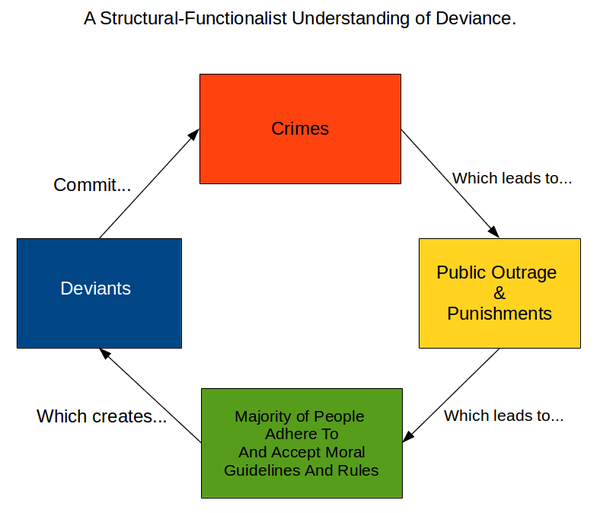The Functionalist View of Society the Family
Functionalists regard society as a
system made up of different parts which depend on each other. Different
institutions each perform specific functions within a society to keep that
society going, in the same way as the different organs of a human body perform
different functions in order to maintain the whole.
In functionalist thought, the
family is a particularly important institution as this it the ‘basic building
block’ of society which performs the crucial functions of socializing the young
and meeting the emotional needs of its members. Stable families underpin social
order and economic stability.
George Peter Murdock – The four
essential functions of the nuclear family
Looked at 200 different societies
and argued that family was universal (in all of them). Suggested there were
‘four essential functions’ of the family:
1. Stable satisfaction of the sex
drive – within monogomous relationships
2. The biological reproduction of
the next generation – without which society cannot continue.
3. Socialization of the young –
teaching basic norms and values
4. Meeting its members economic
needs – producing food and shelter for example.
Functionalist Perspective
The functionalist perspective is based largely on the works of Herbert Spencer, Emile Durkheim, Talcott Parsons, and Robert Merton. According to functionalism, society is a system of interconnected parts that work together in harmony to maintain a state of balance and social equilibrium for the whole. For example, each of the social institutions contributes important functions for society: Family provides a context for reproducing, nurturing, and socializing children; education offers a way to transmit a society’s skills, knowledge, and culture to its youth; politics provides a means of governing members of society; economics provides for the production, distribution, and consumption of goods and services; and religion provides moral guidance and an outlet for worship of a higher power.
The functionalist perspective emphasizes the interconnectedness of society by focusing on how each part influences and is influenced by other parts. For example, the increase in single- parent and dual-earner families has contributed to the number of children who are failing in school because parents have become less available to supervise their children’s homework. As a result of changes in technology, colleges are offering more technical programs, and many adults are returning to school to learn new skills that are required in the workplace. The increasing number of women in the workforce has contributed to the formulation of policies against sexual harassment and job discrimination.
Functionalists use the terms functional and dysfunctional to describe the effects of social elements on society. Elements of society are functional if they contribute to social stability and dysfunctional if they disrupt social stability. Some aspects of society can be both functional and dysfunctional. For example, crime is dysfunctional in that it is associated with physical violence, loss of property, and fear. But according to Durkheim and other functionalists, crime is also functional for society because it leads to heightened awareness of shared moral bonds and increased social cohesion.
Sociologists have identified two types of functions: manifest and latent (Merton 1968). Manifest functions are consequences that are intended and commonly recognized. Latent functions are consequences that are unintended and often hidden. For example, the manifest function of education is to transmit knowledge and skills to society’s youth. But public elementary schools also serve as babysitters for employed parents, and colleges offer a place for young adults to meet potential mates. The baby-sitting and mate-selection functions are not the intended or commonly recognized functions of education; hence they are latent functions.
2. Finish Children's Books

No comments:
Post a Comment